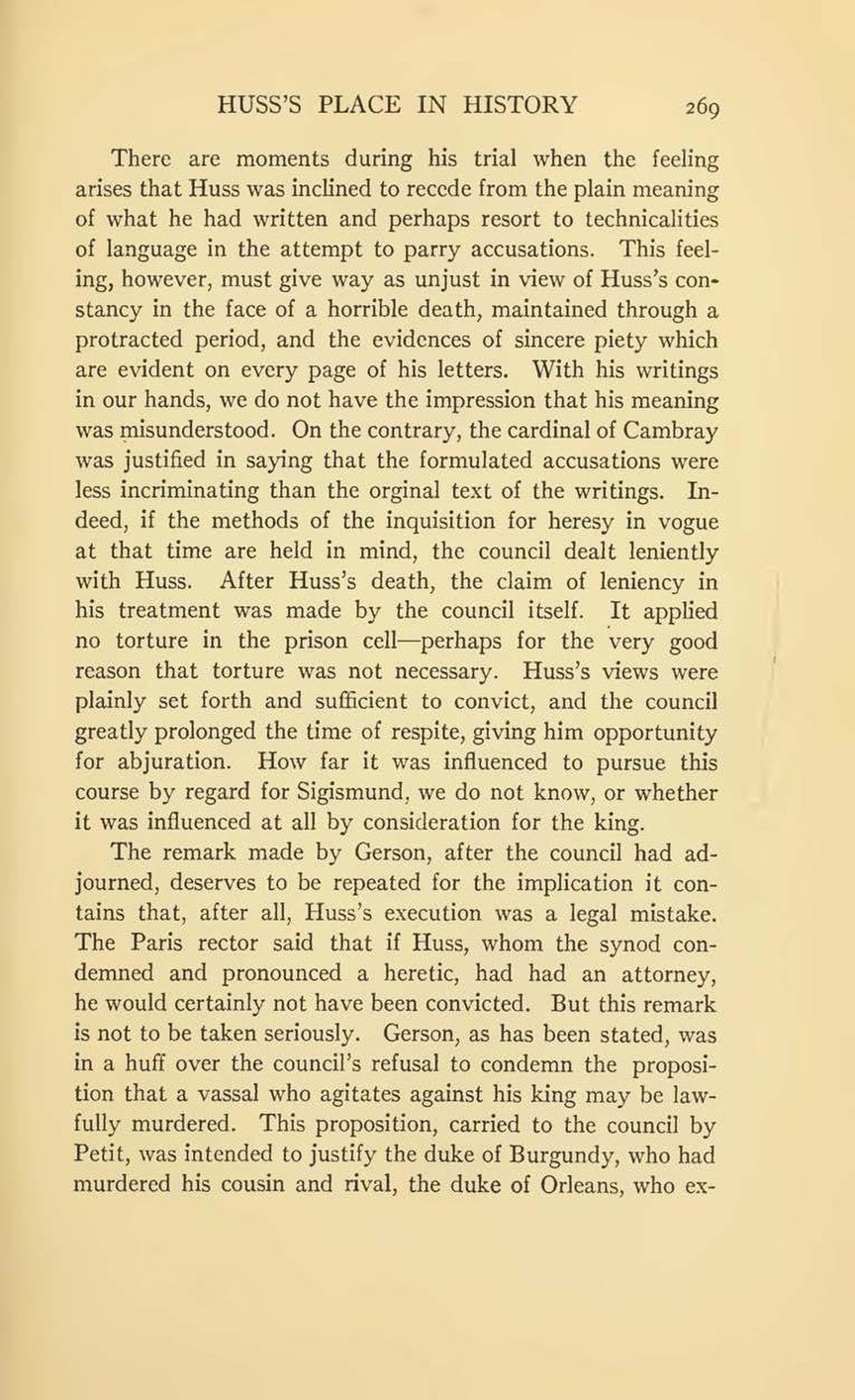There are moments during his trial when the feeling arises that Huss was inclined to recede from the plain meaning of what he had written and perhaps resort to technicalities of language in the attempt to parry accusations. This feeling, however, must give way as unjust in view of Huss’s constancy in the face of a horrible death, maintained through a protracted period, and the evidences of sincere piety which are evident on every page of his letters. With his writings in our hands, we do not have the impression that his meaning was misunderstood. On the contrary, the cardinal of Cambray was justified in saying that the formulated accusations were less incriminating than the orginal text of the writings. Indeed, if the methods of the inquisition for heresy in vogue at that time are held in mind, the council dealt leniently with Huss. After Huss’s death, the claim of leniency in his treatment was made by the council itself. It applied no torture in the prison cell-perhaps for the very good reason that torture was not necessary. Huss’s views were plainly set forth and sufficient to convict, and the council greatly prolonged the time of respite, giving him opportunity for abjuration. How far it was influenced to pursue this course by regard for Sigismund, we do not know, or whether it was influenced at all by consideration for the king.
The remark made by Gerson, after the council had adjourned, deserves to be repeated for the implication it contains that, after all, Huss’s execution was a legal mistake. The Paris rector said that if Huss, whom the synod condemned and pronounced a heretic, had had an attorney, he would certainly not have been convicted. But this remark is not to be taken seriously. Gerson, as has been stated, was in a huff over the council’s refusal to condemn the proposition that a vassal who agitates against his king may be lawfully murdered. This proposition, carried to the council by Petit, was intended to justify the duke of Burgundy, who had murdered his cousin and rival, the duke of Orleans, who ex-
